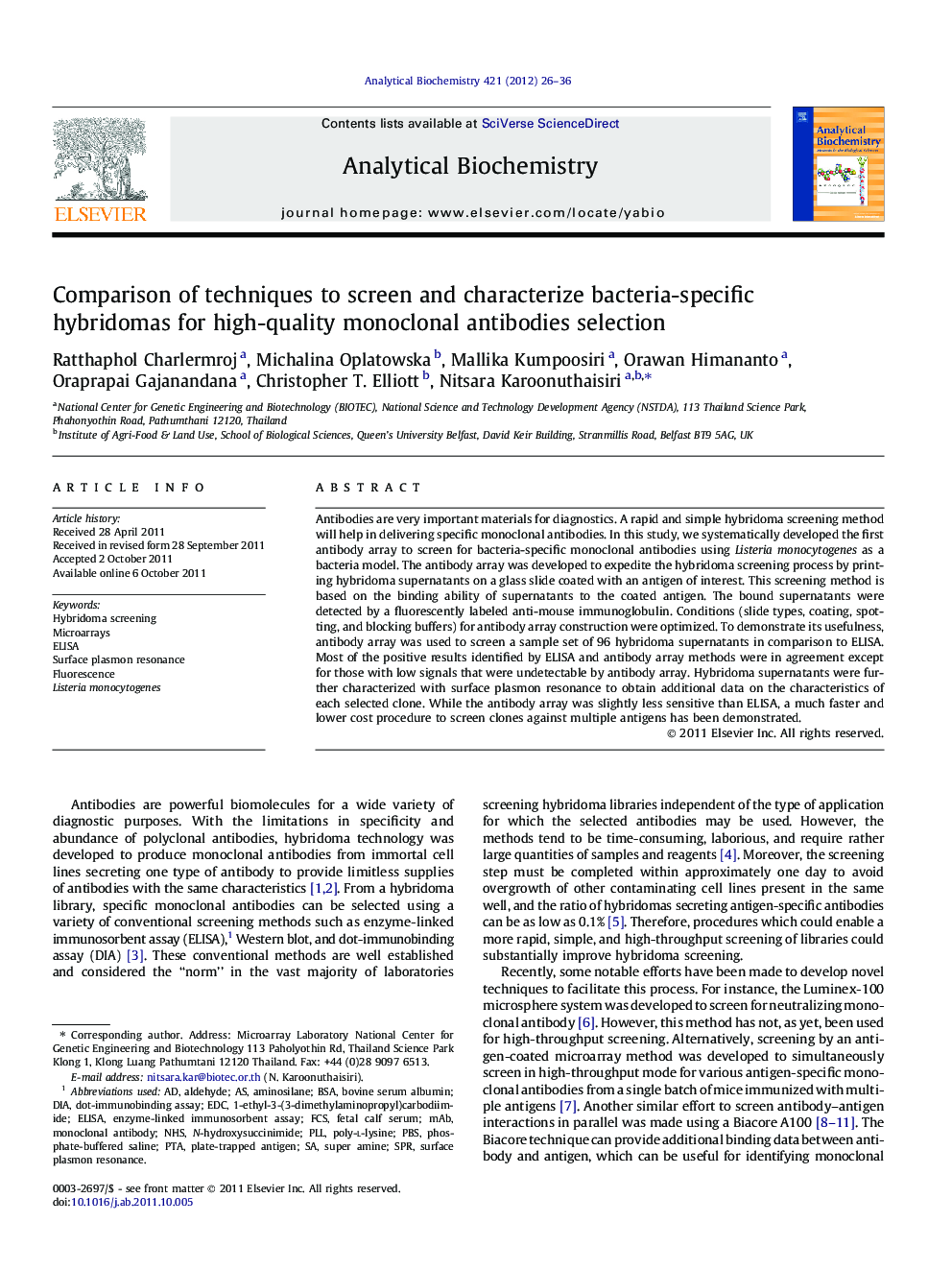| Article ID | Journal | Published Year | Pages | File Type |
|---|---|---|---|---|
| 1173244 | Analytical Biochemistry | 2012 | 11 Pages |
Antibodies are very important materials for diagnostics. A rapid and simple hybridoma screening method will help in delivering specific monoclonal antibodies. In this study, we systematically developed the first antibody array to screen for bacteria-specific monoclonal antibodies using Listeria monocytogenes as a bacteria model. The antibody array was developed to expedite the hybridoma screening process by printing hybridoma supernatants on a glass slide coated with an antigen of interest. This screening method is based on the binding ability of supernatants to the coated antigen. The bound supernatants were detected by a fluorescently labeled anti-mouse immunoglobulin. Conditions (slide types, coating, spotting, and blocking buffers) for antibody array construction were optimized. To demonstrate its usefulness, antibody array was used to screen a sample set of 96 hybridoma supernatants in comparison to ELISA. Most of the positive results identified by ELISA and antibody array methods were in agreement except for those with low signals that were undetectable by antibody array. Hybridoma supernatants were further characterized with surface plasmon resonance to obtain additional data on the characteristics of each selected clone. While the antibody array was slightly less sensitive than ELISA, a much faster and lower cost procedure to screen clones against multiple antigens has been demonstrated.
